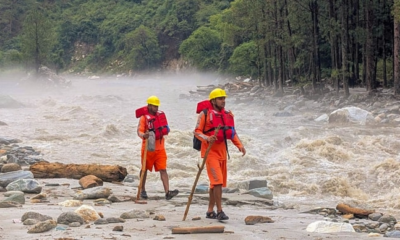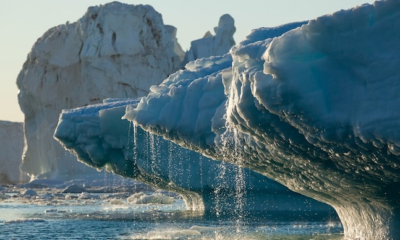Earth’s Oceans Are Getting Darker, Threatening Marine Life, New Study Finds
Scientists have discovered a striking and concerning trend: more than 21% of the world’s oceans have become significantly darker over the past two decades. Covering an area larger than 75 million square kilometers, this widespread darkening is reducing the depth of the ocean’s photic zones — the sunlit layers that sustain nearly 90% of marine life.
The study, published recently in Global Change Biology, was led by researchers from the University of Plymouth and Plymouth Marine Laboratory. Using satellite data and advanced numerical models spanning 2003 to 2022, the team tracked changes in the oceans’ optical properties. Their findings revealed that vast areas of both coastal and open ocean have seen a shallowing of the photic zone, where sunlight and moonlight fuel critical ecological interactions.
In particular, over 9% of the ocean, an area roughly the size of Africa, experienced a decrease in photic zone depth by more than 50 meters. Even more alarming, 2.6% of the ocean saw a decline exceeding 100 meters. Though about 10% of the ocean has become lighter, the prevailing global trend is toward darkening — a shift that could have severe consequences for marine species that depend on light for survival, feeding, and reproduction.
“Our results provide evidence that such changes cause widespread darkening that reduces the amount of ocean available for animals that rely on the sun and the moon for their survival and reproduction,” said Dr. Thomas Davies, Associate Professor of Marine Conservation at the University of Plymouth.
Causes of Ocean Darkening
Researchers identified different causes depending on the region. Coastal darkening is mainly attributed to increased nutrient and sediment runoff from agriculture and rainfall. These inputs stimulate plankton growth, which in turn reduces water clarity and limits how far light penetrates.
In the open ocean, the causes are linked to changes in algal bloom patterns and rising sea surface temperatures. These factors alter the composition and abundance of microscopic organisms that affect the water’s optical properties.
Consequences for Marine Ecosystems
The shrinking photic zones force light-dependent marine organisms closer to the surface. This compression increases competition for food and other resources in a smaller habitat, potentially disrupting the balance of marine ecosystems.
Professor Tim Smyth from Plymouth Marine Laboratory explained, “If the photic zone is reducing by around 50 meters in large swathes of the ocean, animals that need light will be forced closer to the surface where they will have to compete for food and the other resources they need. That could bring about fundamental changes in the entire marine ecosystem.”
Such shifts could impact global fisheries, reduce biodiversity, and alter the ocean’s ability to regulate carbon and climate — functions vital to human well-being.
Urgent Need for Action
The study’s findings highlight an urgent need to better understand the drivers behind ocean darkening and to develop strategies to mitigate its impact. Addressing nutrient runoff and climate-related factors will be critical to protecting marine biodiversity and ensuring the health of the ocean for future generations.
As the oceans continue to change, scientists stress the importance of ongoing monitoring and research to anticipate and respond to these environmental challenges.




























